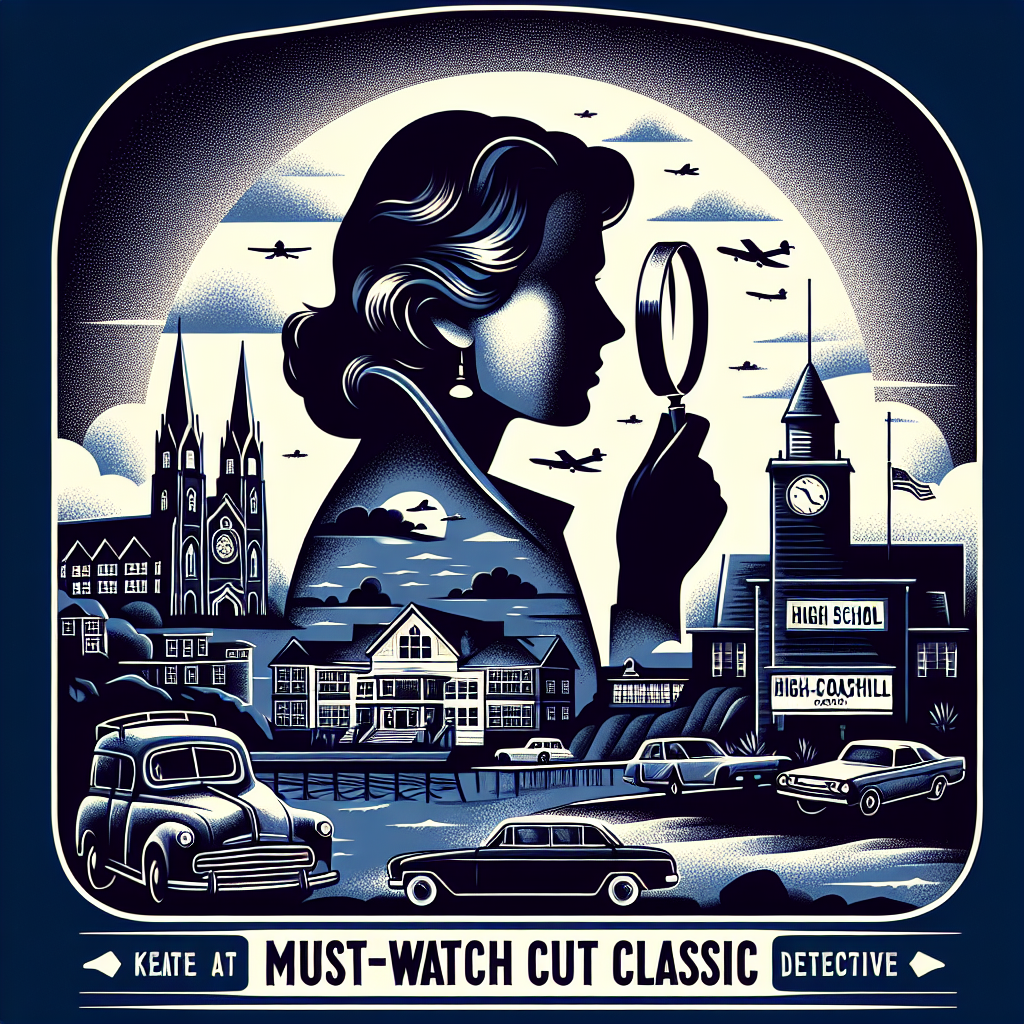Veronica Mars: A Reflection on Its Impact and Legacy
Introduction
"Veronica Mars," a television series that premiered on the UPN network in 2004, stands as a seminal work in the landscape of early 21st-century television. Created by Rob Thomas, the show intertwines elements of mystery, drama, and teen noir, setting a unique tone that distinguishes it from its contemporaries. Centered around the adolescent detective Veronica Mars, portrayed by Kristen Bell, the series explores complex societal issues through the lens of youthful but shrewd investigation.
Significance in Television History
"Veronica Mars" arrived during a transformative period in television history, characterized by the rise of complex narratives and richly developed characters. As a hybrid genre show, blending high school drama with hardboiled detective fiction, it broke new ground. It challenged the conventions of both genres and introduced a new standard for serialized storytelling. Its innovative approach to character development and thematic exploration has left a lasting impression, not only marking "Veronica Mars" as an important cultural text but also influencing the evolution of television as a whole.
Main Themes
Central to "Veronica Mars" are themes of social inequality, the quest for justice, and the transition from adolescence to adulthood. The show frequently delves into the stark divisions between the affluent and the less privileged residents of the fictional town of Neptune, California. Through Veronica’s investigations, the series exposes the corrupt underpinnings of wealth and power, often revealing how the system perpetuates injustice.
Another critical theme is loyalty and its complexities. Veronica’s relationships — with her father Keith Mars (Enrico Colantoni), her best friend Wallace Fennel (Percy Daggs III), and her complicated love interests Logan Echolls (Jason Dohring) and Duncan Kane (Teddy Dunn) — illustrate the intricacies of loyalty under pressure. Her unwavering dedication to uncovering the truth often puts these relationships to the test, highlighting the personal costs of her dogged pursuit of justice.
Character Arcs and Development
Veronica Mars herself undergoes significant growth throughout the series. Initially depicted as a cynical and somewhat isolated figure, hardened by her best friend Lilly Kane’s (Amanda Seyfried) murder and her mother’s abandonment, she slowly opens up and builds meaningful connections. This transformation is incremental and nuanced, documenting the protagonist’s journey from a vengeful outsider to a more empathetic and self-aware individual.
Keith Mars, Veronica’s father, presents an exemplary depiction of a supportive, albeit imperfect, parental figure. Their relationship is the emotional core of the series, demonstrating mutual respect and love despite the challenges they face. Keith’s own journey, from a disgraced sheriff to a private investigator and pillar of integrity, mirrors Veronica’s struggle against the odds.
Logan Echolls, perhaps the most complex character arc, transitions from a troubled, antagonistic teenager to a more profoundly self-reflective individual. His tumultuous relationship with Veronica, fraught with trust issues and emotional baggage, serves as a pivotal narrative thread that adds depth to the concept of redemption and forgiveness.
Narrative Techniques
The narrative structure of "Veronica Mars" stands out due to its innovative use of season-long story arcs interwoven with episodic mysteries. Each episode functions both as a standalone story and as part of a broader, more intricate puzzle. This dual-layered approach maintains consistent viewer engagement by offering immediate resolutions while building anticipation for the overarching narrative.
The voice-over narration by Veronica is a distinctive stylistic device that provides insight into her thoughts and motivations. It establishes an intimate connection with the audience, allowing viewers to grasp the subtleties of her character development and the thematic undercurrents of the plot.
Cultural, Social, and Historical Contexts
"Veronica Mars" operates within a socio-cultural milieu that grapples with issues of class disparity, systemic corruption, and justice. The show’s depiction of Neptune as a microcosm of broader societal inequities reflects contemporary concerns about socio-economic division and privilege. In this respect, it resonates with viewers who recognize these dynamics in their own communities.
The series also challenged television norms concerning female protagonists. Veronica Mars is portrayed as intelligent, resourceful, and unapologetically assertive, breaking away from traditional gender roles. This portrayal has had a lasting impact, contributing to a broader movement towards more complex and empowered female characters on television.
Legacy and Influence
The enduring legacy of "Veronica Mars" is evident in its influence on subsequent television series. Shows like "Riverdale" and "Pretty Little Liars" owe a debt to its blend of high school drama and mystery. Additionally, the passionate fanbase of "Veronica Mars," evidenced by the successful Kickstarter campaign to fund a feature film continuation in 2014, showcases the lasting connection viewers feel with the series.
"Veronica Mars" also helped to bolster Kristen Bell’s career, establishing her as a significant talent and paving the way for her future roles in both television and film.
Conclusion
In reflecting on "Veronica Mars," several questions arise: How does the show’s portrayal of social inequality and justice resonate with contemporary audiences? To what extent did the depiction of a strong, complex female lead alter the landscape of television? And, importantly, how might Veronica Mars navigate the challenges of today’s world, marked by new forms of social and digital interconnectedness?
"Veronica Mars" remains a relevant and thought-provoking series, compelling viewers to consider the nature of justice, loyalty, and integrity. Its lasting impact on television and popular culture highlights the power of storytelling to reflect and influence societal values. As we revisit the world of Neptune, California, it’s clear that the questions it raises and the themes it explores are as pertinent today as they were when the series first aired.
Got more questions? Our personalized TV Explorer AI assistant is here to help. Click here to start a conversation!
[Advertisement]
Want to see the deeper significance behind your favorite TV shows? Discover how ANY show relates to positive biblical principles with TV and Scripture GPT from BGodInspired.com. Click here to gain insights that go beyond the screen!
[Advertisement]

